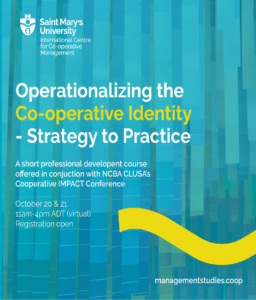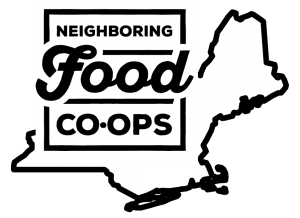 Your Neighboring Food Co-ops
Your Neighboring Food Co-ops
Locally Owned by More Than
160,000 People Like You!
- More Farms, More Food. Eat Local!
- Meeting Community Needs
- Evolution of the Co-operative Identity
- CoBank: Cooperative. Connected. Committed.
- August’s Cave to Co-op Special
- Farmers Union: INVEST in America
- Co-op Calendar
More Farms, More Food. Eat Local!
August is a great time to eat local, supporting our local farmers and strengthening our local economies.
As the summer bounty from local farms rushes in, filling our co-ops’ Produce Departments, Farmers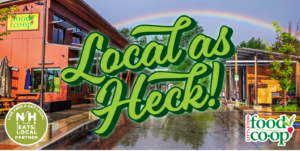 Market stands, and the gorgeous plates of food at our own tables, we are reminded of how important choosing local food is to the health and wellbeing of our communities. When we eat local, local farmers thrive and the benefits are felt throughout the community, preserving open lands, supporting local businesses, and ensuring access to healthy, nourishing foods for you and your family.
Market stands, and the gorgeous plates of food at our own tables, we are reminded of how important choosing local food is to the health and wellbeing of our communities. When we eat local, local farmers thrive and the benefits are felt throughout the community, preserving open lands, supporting local businesses, and ensuring access to healthy, nourishing foods for you and your family.
Your food co-op is committed to local producers and plays a critical role in ensuring that they have stable, year-round markets to sell their products and a place for local producers to test out and incubate new products. For years, the Neighboring Food Co-op Association (NFCA) has surveyed its member co-ops on our collective impact on the regional food system and economy. Our Annual Impact Survey for 2020 revealed that, on average, 26% of sales at your local food co-ops are local products, which is significantly higher compared to the national average for chain grocers. And together, our 42 member co-ops sold over $100 million in local products last year, demonstrating our commitment to supporting local farmers and producers.
Across our region, food co-ops are overflowing with local produce. And this year, NFCA member co-ops Monadnock Food Co-op and Littleton Food Co-op have geared up to celebrate Eat Local Month, sponsored by NH Eats Local. This yearly celebration of local farmers, producers and food businesses, and is part of a larger Shop Indie year-long campaign supported by the American Independent Business Alliance. Both co-ops have jumped right in with special deals, cool resources, and a variety of celebratory events and offerings to help their members and shoppers celebrate.
Our food co-ops also support local producers through our partnership with the New England Farmers Union, the youngest and fastest growing chapter of the National Farmers Union, which represents family farmers, fishers and ranchers across the country. You can help support local producers by eating local — and by joining the Farmers Union, ensuring that our region’s farmers and consumers are heard by policy makers here at home and in Washington, DC. For more information and to learn more about special discounted membership for members of NFCA food co-ops, visit their website.
What are you and your local co-op doing to celebrate eating local this month and all year ‘round? Let us know!
“The Native American food and agriculture sector is the single most underappreciated resources for sustainable, rural economic development in our nation.”
In August, the Native American Agriculture Fund (NAAF), Cooperative Development Foundation (CDF),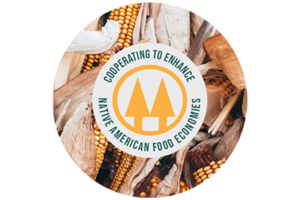 and the National Cooperative Business Association CLUSA International (NCBA CLUSA) cohosted a conference on “Cooperating to Enhance Native American Food Economies.” Building on NAAF’s report, Vision for Native Food & Agriculture, this webinar series discussed the role of co-operatives in harnessing Indian Country’s economic and nutritional potential to recover from COVID-19 and propel sustainable rural economic development.
and the National Cooperative Business Association CLUSA International (NCBA CLUSA) cohosted a conference on “Cooperating to Enhance Native American Food Economies.” Building on NAAF’s report, Vision for Native Food & Agriculture, this webinar series discussed the role of co-operatives in harnessing Indian Country’s economic and nutritional potential to recover from COVID-19 and propel sustainable rural economic development.
As part of the four day event, Neighboring Food Co-op Association (NFCA) Executive Director Erbin Crowell was honored to moderate a panel on “Meeting Community Needs: Co-operatives in Action,” sharing some of the ways that co-ops and their associations enable people to work together to build more resilient and sustainable communities.
“It was indigenous and campesino communities that first introduced me to co-ops,” said Crowell. “And while its legal roots are in Europe, the co-op model grew out of traditional patterns of mutual self-help in response to industrialization and capitalism — and that’s why it was adapted, adopted and recognized by communities around the world as they faced the expansion of globalization and the expansion of these models. It’s a model designed to meet people’s needs rather than maximize profits. It’s a model for sustainability and building shared wealth rather than extraction. It’s a model for self-help, engaging communities in developing their own solutions. And it’s a model for solidarity, with the understanding that our own needs are best met by ensuring that everyone’s needs are met, together.”
To help make the case for co-ops and their potential, the panel included representatives from across sectors, including CE Pugh, CEO, National Co+op Grocers; Jerry McGeorge, Executive Vice President of People, Organic Valley; Felipe Witchger, Executive Director, Community Purchasing Alliance; and Duane Wilson, Vice President Stakeholder Relations, Arctic Co-operatives Limited.
The conference included presentations from leaders across Indian Country, co-ops, and government, as well as small group discussions among participants, offering an inspiring dialog on the potential for Cooperating to Enhance Native American Food Economies. For more information, recorded presentations and resources from the conference, visit https://www.cdf.coop.
Evolution of the Co-operative Identity
Democracy & Equity. Self-Help & Solidarity. Concern for Community.
Since 1844, co-operative enterprise been guided by the principles established by the Rochdale Pioneers in the North of England. Well, yes — but not quite. In founding their co-op, the Pioneers were building on many experiments that came before them. And while their model spread rapidly, it was not until 1937 that the International Co-operative Alliance (ICA) distilled their rules into a set of formal guidelines for a diverse, cross-sector movement serving communities around the world. Updated over time in response to changing social, political and economic conditions, these principles were last updated in 1995.
In this webinar with the National Farmers Union, Erbin Crowell, Executive Director of the Neighboring Food Co-op Association (NFCA) and former Chair of National Cooperative Business Association, and special guest Martin Lowery, U.S. Representative to the Board of the International Co-operative Alliance (ICA) and Executive Vice President, Emeritus, of the National Rural Electric Cooperative Association (NRECA), discuss the evolution of the Co-operative Identity, how co-ops have worked to be responsive to the needs of their time, and how these values and principles will be at the center of the 33rd World Co-operative Congress coming up in December.
This webinar is part of a series being developed by Crowell for NFU as a resource for education and participation in the cross-sector co-operative movement. Topics include co-operative history, growth and development, and relevance to contemporary issues.
“The purpose of this webinar and the other co-op sessions we host throughout the year,” said Emma Lindberg, NFU Education Director, “is to share more information about NFU’s co-operative legacy, encourage involvement in co-ops, and to answer your questions about co-ops.”
These videos are a great resource for food co-ops interested in providing educational opportunities for staff and directors on the wider co-operative movement. To view this and other webinars in the series, please visit the NFCA YouTube Channel.
CoBank: Cooperative. Connected. Committed.
CoBank is a national co-operative bank and one of the largest private providers of credit to the U.S. Rural Economy.
As an integral member of the Farm Credit System, CoBank’s mission is to serve as a relevant and dependable provider of credit and other value added financial services and support to agriculture, rural infrastructure and other similar business for the benefit of rural America.
While CoBank was formed in 1989, our roots extend back over a century to the establishment of the Farm Credit System (FCS) in 1916 when Congress established twelve Federal Land Banks and later Federal Land Bank Associations to lend to farmers across the nation. As the FCS evolved, the Farm Credit Act of 1987 provided flexibility that led to the 1989 creation of CoBank from the merger of 11 of the Banks for Cooperatives with $12 billion in assets, $9 billion in outstanding loans and $807 million in capital.
Today, CoBank reports near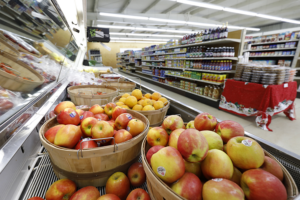 ly $125 billion in loans outstanding and $160 billion in assets. We provide loans, leases, export financing and other financial services to agribusinesses and rural power, water and communications providers in all 50 states. The bank also provides wholesale loans and other financial services to affiliated Farm Credit associations serving more than 75,000 farmers, ranchers and other rural borrowers in 23 states around the country. Headquartered outside Denver, Colorado, CoBank serves customers from regional banking centers across the U.S. and maintains an international representative office in Singapore.
ly $125 billion in loans outstanding and $160 billion in assets. We provide loans, leases, export financing and other financial services to agribusinesses and rural power, water and communications providers in all 50 states. The bank also provides wholesale loans and other financial services to affiliated Farm Credit associations serving more than 75,000 farmers, ranchers and other rural borrowers in 23 states around the country. Headquartered outside Denver, Colorado, CoBank serves customers from regional banking centers across the U.S. and maintains an international representative office in Singapore.
CoBank is well-positioned to meet the financial needs of our customers and to continue to fulfill our mission from Congress of delivering capital to rural America. As we see those needs evolve and grow, we are ready to meet the challenge.
CoBank also is committed to the Co-operative Principle of Concern for Community and invests ~1% of revenues in corporate citizenship and charitable giving. Our signature program is Sharing Success through which we match customer contributions up to $10,000 per year. That program has helped deliver more than $62 million dollars to worthy recipients in the communities where our customers live and work.
CoBank also works with partners across the country to support the development and success of local food cooperatives in rural communities, especially those that have lost or are at risk of losing their local grocery stores. Access to fresh, healthy food is a vital resource for every community. Local food cooperatives increase access, create economic growth and support the infrastructure of our communities. As part of these efforts, CoBank is proud to be a long-time sponsor of the Neighboring Food Co-op Association.
As part of our effort to encourage more people to “Go Co-op”, the Neighboring Food Co-op Association partners with organizations like CoBank to build greater awareness of co-ops and credit unions and how they help to build stronger communities and a more just, inclusive and sustainable economy. To learn more about CoBank, visit https://www.cobank.coop.
August’s Cave to Co-op Special
Swallow Tail Tomme, Stony Pond Farm, Enosburg, VT
Swallow Tail Tomme is named after swallows that swoop and dive over the fields at Stony Pond,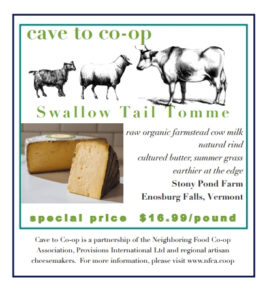 controlling pests that would bother cow and human alike. Made using raw milk from a single milking, then aging for an average of ninety days, this cheese is a time capsule of the organic fields spring through early fall.
controlling pests that would bother cow and human alike. Made using raw milk from a single milking, then aging for an average of ninety days, this cheese is a time capsule of the organic fields spring through early fall.
Stony Pond Farm is a 260 acre certified organic first generation farm owned and operated by Tyler and Melanie Webb in Enosburg Falls, Vermont. When Tyler bought the farm in 2004 it was run down, had poor pastures, and no roads; it was exactly what he was looking for. After a stint at a large conventional farm and then for the National Resource Conservation Service of the USDA he realized that the conventional methods were not the path he wanted to take. It took sitting in at organic grazing meetings at conferences to put him on the path to the Northeast Organic Farming Association of Vermont and that particular run down farm.
People looking at Stony Pond Farm’s cattle might come away scratching their heads. The mix of breeds is a little strange for most New England farms. There are Jerseys, Devons, and British White mixed together. The calves are even more unique. The milk comes from the pretty faced Jerseys and some of the Devons, giving plentiful and rich milk, which until summer of 2019 was sold to Organic Valley. A lifelong dream of making cheese had Melanie and Tyler converting an un-used part of their property into a cheesemaking room and another into an aging room where cheese is made 2-3 times a week.
If you were to ask a cheese pro what a Tomme is they’d likely give an answer along the lines of: it’s a small format natural rind farmer’s cheese. Another answer might be: Tommes refer to small cheeses made in the summer months while the ruminants are out eating fresh grass. Both definitions would apply to Swallow Tail Tomme.
Each month our Cave to Co-op partnership between Provisions International and the Neighboring Food Co-op Association (NFCA) offers a delicious regional cheese featured at a great price. Strengthening our local and regional farmers and producers by supporting artisanal cheesemakers is a key goal of the Cave to Co-op program. Find more information, photos and recipes on our August Cave to Co-op page.
Farmers Union: INVEST in America!
Earlier this month, the U.S. Senate passed the INVEST in America Act, which would allocate $1.2 trillion towards updating national infrastructure.
The package would benefit family farmers and rural communities by improving roads and bridges, expanding broadband access, protecting watersheds, and building resilience to climate change.
expanding broadband access, protecting watersheds, and building resilience to climate change.
Because rural areas are home to a disproportionate share of our country’s outdated infrastructure, National Farmers Union (NFU) has been pushing legislators to invest in modernization for many years. In response to the bill’s passage, the organization’s president, Rob Larew, issued the following statement:
“Family farmers depend on our roads and bridges to deliver their goods to market, our watersheds to grow their crops, and high-speed broadband to reach customers and access information about markets and the weather. But much of our infrastructure is crumbling – particularly in rural communities. Our dilapidated roads, weak internet connections, inadequate cybersecurity, poor drinking water, and outdated inland waterway system’s ports and dams are undermining residents’ physical safety and financial wellbeing, risks that will only grow with climate-related pressures.
“National Farmers Union is relieved that our legislators are finally paying attention to this crisis. The INVEST in America Act will help modernize our antiquated infrastructure, bolstering rural economies and preparing them for the challenges ahead. More specifically, we are pleased with the inclusion of provisions that would address the affordability of broadband, expand disaster relief and emergency assistance for extreme weather events, improve the resilience of watersheds, and update hours-of-service exemptions for agricultural and livestock haulers.
“We can’t waste any more time–the House must take up this legislation as soon as possible to build stronger, safer, and more sustainable infrastructure.”
You can help by reaching out top your Congressional Representatives and ask them to support passage of the INVEST in America Act.
Our Local Farmers & Fishermen Need You!
Do you care about where your food comes from and want to support the people who produce it? Join the NEFU as a Friend of the Farmer for just $15. Your membership will help ensure that our region’s producers and consumers are heard by policy makers here at home and in Washington, DC. For more information, please visit www.newenglandfarmersunion.org.
For More Co-op Events, Visit https://nfca.coop/calendar
The Neighboring Food Co-op Association (NFCA) is a co-operative federation of over 40 food co-ops and startup initiatives across New England, working together toward a shared vision of a thriving co-operative economy, rooted in a healthy, just, and sustainable food system and a vibrant community of co-operative enterprise.



